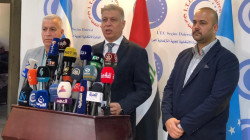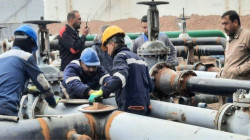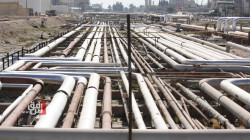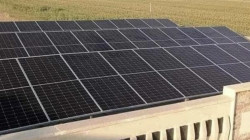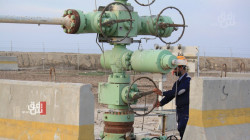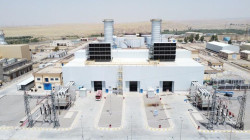Revival of crude oil pumping from Kirkuk fields following a decade hiatus
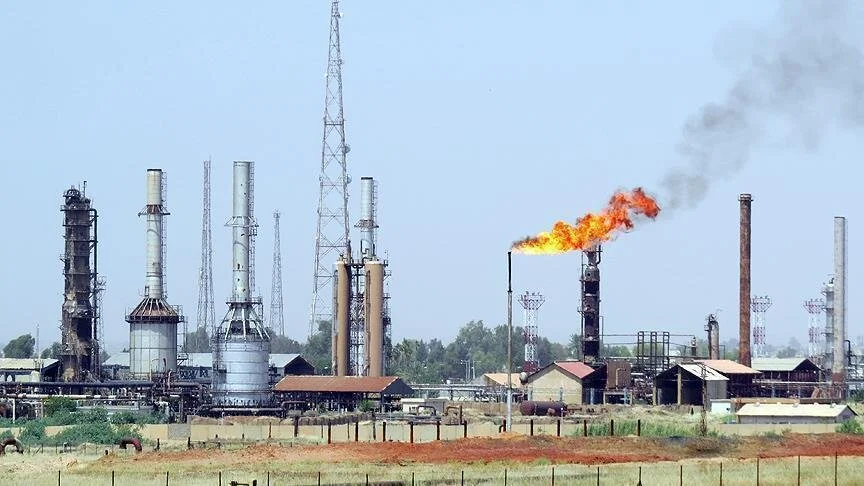
Shafaq News / A petroleum industry source within the North Oil Company disclosed, on Tuesday, the resumption of crude oil pumping from the Kirkuk oil fields towards the Doura refinery in Baghdad, following a hiatus since the 2014 ISIS envasion.
The source informed Shafaq News Agency that "central directives were issued by the Ministry of Oil and the Director-General of the North Oil Company, Burkan Hassan Abdullah, to convey crude oil via the strategic pipeline to the Doura refinery in Baghdad, utilizing Station (K3) and vice versa." He clarified that "this pipeline had been inactive for years due to damage inflicted in 2014."
The source affirmed that "the workforce of Pumping Station K3, through exceptional and self-initiated efforts, succeeded in restarting the fourth pump. This involved comprehensive maintenance of the main pump and electric motor, installation of protective devices, pressure gauges, and temperature gauges in collaboration with the Western System Electricity Division, Precision Machinery Unit, and Safety and Fire Unit at Station K3." He emphasized that "the work is ongoing to rehabilitate other pumps gradually."
"The personnel of the North Oil Company at Pumping Station K3 achieved a remarkable accomplishment by commencing the direct pumping of crude oil via the strategic pipeline (K3/Basra) from the tanks of Station K3 to the south, to deliver crude oil to the Doura refinery and the Mussayib power station by operating booster pumps within the designated operational capacity and pressures, per specified quantities."
In a related context, oil industry specialist Ali Khalil confirmed that "the North Oil Company has managed to achieve a qualitative breakthrough in resuming pumping operations in pipelines that were targeted during the ISIS era, especially the Kirkuk-Doura, Kirkuk-Doura-Mussayib, and Kirkuk-Basra pipelines."
He affirmed that "the current production of the Northern Oil Company is considered low compared to previous years, with a decrease of 50%. The company's fields produced around 650,000 bpd from 2009 to 2012, whereas current production stands at approximately 325,000 bpd."
ISIS seized control of Kirkuk and its surrounding areas in June 2014 as part of its rapid territorial expansion across Iraq and Syria. It capitalized on political instability, sectarian tensions, and grievances among certain Sunni Arab communities in Iraq to gain territory and establish its self-proclaimed caliphate.
Its occupation of Kirkuk had significant implications for the region's oil production and infrastructure.
Kirkuk is home to one of Iraq's largest oil fields, which is crucial for the country's economy.
ISIS's control over the area disrupted oil production and exports, leading to a decline in Iraq's overall oil output.
During its occupation, ISIS targeted oil infrastructure for destruction and looting, including oil wells, pipelines, and refineries. This sabotage resulted in significant damage to the oil infrastructure in Kirkuk and surrounding areas, further hampering oil production and exacerbating the economic impact on Iraq.
Additionally, ISIS's presence in Kirkuk and its surrounding areas posed security challenges for oil workers and facilities, making it difficult to operate and maintain oil installations safely.
Its activities also disrupted the flow of oil supplies and exports, affecting both domestic and international markets.
Overall, ISIS's control of Kirkuk had a detrimental effect on oil production and infrastructure in the region, contributing to Iraq's economic challenges during that period.
Since the liberation of Kirkuk from ISIS control and subsequent efforts to restore security and rebuild infrastructure, there have been ongoing efforts to revive oil production and rehabilitate the oil sector in the region.
